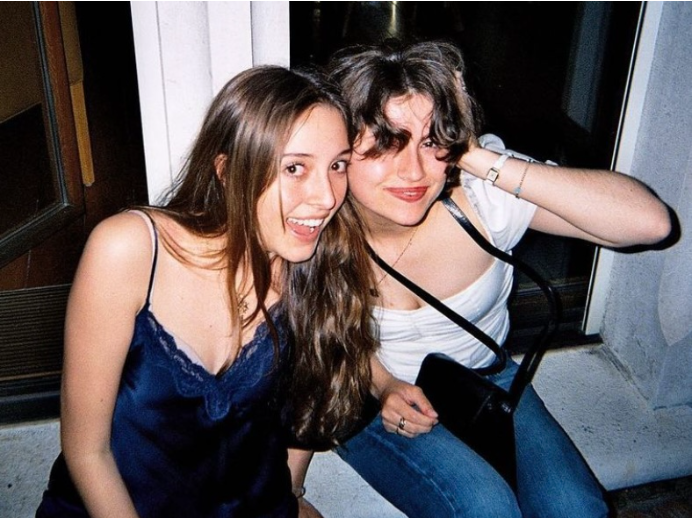By Maude Thorens, Year 12
The Class of 2025 have just joined Year 12, and are now part of the IB program, a long and difficult course which lasts 2 years. Students are required by the IB to do projects such as internal assessments, extended essays, and most importantly, CAS. However, since most of Year 12 are new to this idea, some people struggle to understand the specifics of CAS, what it requires, what is necessary… For year 11 students can also keep in mind that they will be undertaking this next year, and could gain an advantage by already knowing what CAS is.
I interviewed Mme. Hochet, our CAS coordinator to get some insight on what CAS really is and what students should be doing.
Mme. Hochet, est-ce que vous aimerez-vous vous présenter, qui vous êtes et qu’est-ce que vous faites?
Je suis la coordinatrice CAS en plus de mon travail de professeur de français. CAS est donc un composant de l’IB, créativité, activity, service, des composants obligatoires que les élèves doivent faire.
If we still haven’t started one of the CAS categories, is that bad and should we start?
So, you should start at the beginning of Year 12 because the workload is only going to increase and you will have less time to focus on doing things for CAS as you move into Year 13. Usually, everybody is already involved in some kind of sport or something creative, so activity and creativity are the 2 strands which are easier to complete for most students, and what’s going to happen is you’re going to have to get out of your comfort zone with the service, and the service should definitely happen in Year 12, as you won’t have time in Year 13.
How many hours do we have to do for each strand, when is the line drawn?
It used to be based on hours around 10 years ago, but the program changed a few years ago and it’s not with hours anymore. CAS is now something you should do on a regular basis, but the guide is really open, and regular can mean twice a week, but it can also mean once a month if it’s ongoing. It really depends on your commitment and your level of engagement rather than the amount of hours you spend.
Il y a aussi cette idée de superviseur, beaucoup de personnes disent que cela n’est plus nécessaire, est-ce que c’est vrai?
Alors, effectivement ça a changé; en fait le mentor est un petit peu le superviseur du portfolio en entier. Donc quand vous allez faire vos interviews avec votre mentor, votre mentor va voir un petit peu ce que vous faites pendant le CAS. En revanche, pour les expériences qui sont fait en dehors de l’école, par exemple, si vous jouez au piano et vous avez un professeur de piano, ou vous jouez au foot et donc vous avez un coach de foot, il y a un document dans la Semaine à Venir que j’envoie toutes les semaines, ou à la fin quand vous avez terminé votre expérience, vous ferez signer par votre superviseur qui est responsable de vous pendant l’expérience.
There’s also this idea that school needs to accept or validate your activity, could you elaborate on this?
Yes, so essentially you do speak to your mentor quite a lot about CAS, and I will start checking portfolios from next week. I check every single portfolio twice a year, which takes a lot of time, and because I do it by mentor group, they won’t all be done at the same time, but I do open your portfolio and that’s why it has to be shared with everyone.
Une autre question qui n’arrête pas d’être posée est sur la réflexion, qu’est ce qu’il faut qu’on écrive dans la réflexion?
Les deux réflexions qui doivent vraiment être écrites sont l’introduction et la réflexion finale. Ceux aux milieux, vous pouvez les écrire, vous pouvez faire des mindmaps, vous pouvez les enregistrer… La réflexion c’est quoi en faite, c’est ce que vous êtes en train de faire, ce qui est positif, comment vous vous sentez…etc. Finalement ça peut prendre plein de formes différentes, donc ce n’est pas obligatoirement que des réflexions écrites. Je sais aussi que les élèves ont du mal sur cette idée que ça soit régulier, que si on ne vous en donne pas un certain nombre ce n’est pas très clair pour vous. En fait c’est ça l’idée, que vous devriez pouvoir écrire quand vous avez envie d’écrire. Vous êtes presque des jeunes adultes, faites-vous confiance, mais aussi si votre expérience dure un an et vous le faites une fois effectivement ce n’est pas assez.
Can one activity count for multiple areas?
Essentially, an experience can take several strands, but we are still asking you for a minimum of 3 experiences for your CAS, and that’s the bare minimum. Usually students have more, but if you want to pass CAS then this is what you need. An experience can technically count for two or more strands, but you will still need a list of 3 experiences and a CAS project.
Is CAS one of the points in the IB?
No, it’s a good question. You don’t get a point for the CAS, it’s a pass or fail, so if you fail CAS you fail your IB.
I would like to thank Mme. Hochet for giving us her time. If you have any further questions about CAS you can contact her at stephanie.hochet@ecolint.ch, or (preferably) come see her during CAS drop-ins at GB 02 on Tuesdays and Fridays.



